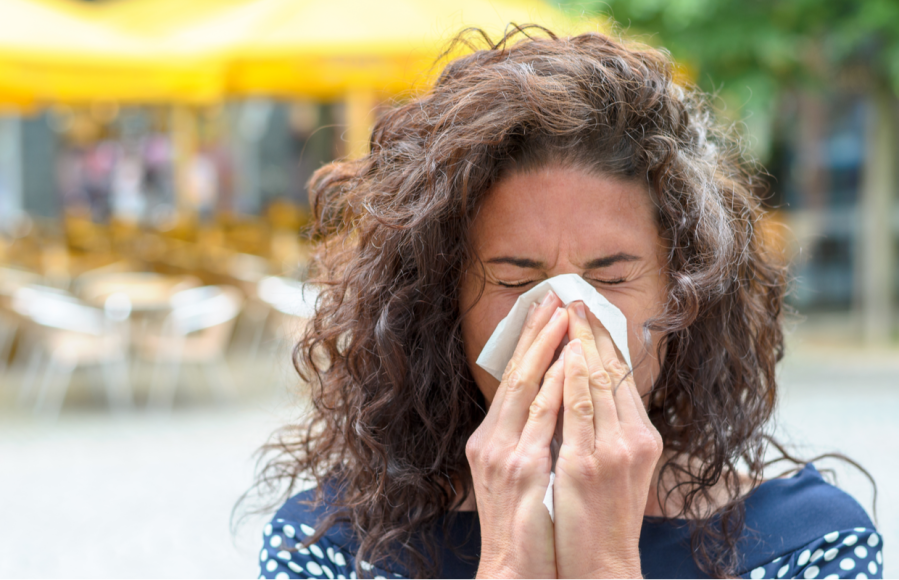While summer can be a joyful time of picnics, country walks and sunshine, for hay fever sufferers it’s a whole other story. After all, it’s hard to enjoy days outside when you’re constantly sniffing, sneezing or suffering from a sore throat or itchy eyes. Ready to learn how to stop hay fever taking over your summer? Let’s take a closer look at the causes, symptoms and best treatments for hay fever…
What causes hay fever?
Hay fever is an allergic reaction that’s most commonly caused by pollen from grass (released during spring and summer). It can also result from tree pollen (released during spring) or weed pollen in late autumn.
Quick hay fever facts:
- Grass pollen is the most common cause in the UK, affecting 95% of sufferers.
- Pollen contains proteins that can cause your sinuses to become swollen and irritated.
- Studies have shown these allergies can also be exacerbated by pollution such as car fumes or smoking.
What are the symptoms of hay fever?
The main symptoms include a runny nose, itchy eyes and sneezing. Many people also get a sore or tickly throat.
A study from the Met Office revealed that a third of hay fever sufferers say it puts them in a continuously bad mood. The study also found that a third of those who struggle with seasonal allergies would take a sick day but worry their bosses don’t take hay fever seriously.
How common is hay fever?
Around one in five people suffer from hay fever at some point in their lives. The Met Office have found that more than half of British sufferers don’t know the type of pollen that triggers their allergies. This means they aren’t sure when to start taking medications.
Why have I developed hay fever as an adult?
While many people find their childhood symptoms improve with age, the opposite can also be true. It’s impossible to predict when and where you might develop allergies. However, there are theories that increases in pollution or, interestingly, our more sanitised lives, might be increasing adult hay fever.
Another theory is that many adults have suffered their whole lives but with minor symptoms that they haven’t really acknowledged before.
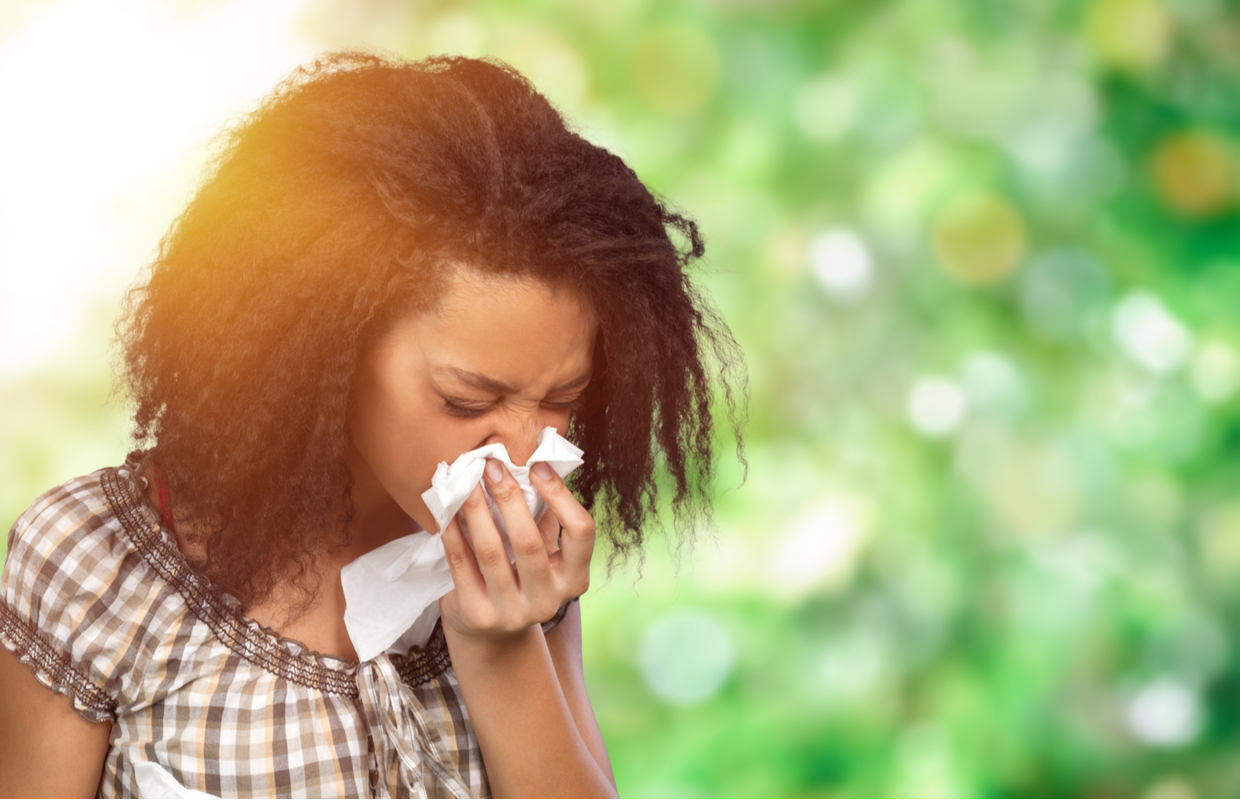
A third of hay fever sufferers say their symptoms put them in a continuously bad mood, and a third would take a sick day but worry their bosses don’t take hay fever seriously.
7 tips to find relief from hay fever
While you can’t technically cure hay fever, there are lots of ways to make life easier. Learn how to stop hay fever symptoms taking over your summer with these official MET office tips, created in association with the NHS:
- Take antihistamines from the start of the season to build up immunity and de-sensitise the effects of high pollen.
- Don’t open the windows when the pollen count is high – it’s tempting to open your windows to let in cooling air on a hot day, something that 4 in 10 hay fever sufferers admit to doing in the summer. You’re better off keeping the windows shut and investing in a fan for days when the pollen count is high.
- Cut the grass – Keeping grass short will help reduce symptoms and allow you to enjoy your garden as it only pollinates when it’s long.
- Don’t hang your washing outside – leaving clothes to dry outside might be tempting in warmer weather but it will result in pollen getting stuck to them. You’ll then be bringing pollen into your home also walking around in it too. If you have the space, it’s best to dry your clothes inside.
- Limit your alcohol intake – 1 in 5 hay fever sufferers admit they increase their intake of alcohol over the summer whilst enjoying the warm weather. Unfortunately, some studies have shown that many alcoholic drinks contain histamine, which is the same substance that’s released into the body when you have an allergic reaction. Alcohol could therefore cause or worsen symptoms of asthma and hay fever, so try to limit the amount you’re consuming over the summer.
- Shower in the evening – Only 23% of hay fever sufferers said they shower in the evening, but this can prove an effective way to combat allergies. Washing away the pollen on your body is a great method to keep symptoms at bay.\Change clothes when you come in from the outside –Unsurprisingly, 8 in 10 hay fever sufferers said they don’t do this, but a slight lifestyle change could prove a big help.
- Set up daily pollen alerts on the Met Office app. They come straight to your phone at 7am so you can plan for your day and take your medication before you leave the house.
If you suffer from hay fever and want to manage your symptoms more effectively, why not check out the Met Office’s dedicated pollen forecast? To receive pollen alerts, download the Met Office mobile app and request alerts for your area, when its moderate or higher (download from the iOS App store or the Google Play store).
Hay fever antihistamine shortage: what you need to know
We caught up with Dr. Edel Duffy, Head of Medical for Fusion Allergy, to discuss the current antihistamine shortage…
Why are we experiencing a shortage of antihistamines?
‘There’s been lots in the media recently about antihistamines being in scarce supply, and this is due to a certain active ingredient called chlorphenamine maleate, commonly found in antihistamine medication, being low in availability,’ Dr. Edel explains.
‘The good news is, this supply shortage should be temporary, and there are lots of alternative antihistamines out there that don’t use this ingredient, as well as other effective products that can be used to help manage hay fever symptoms.’
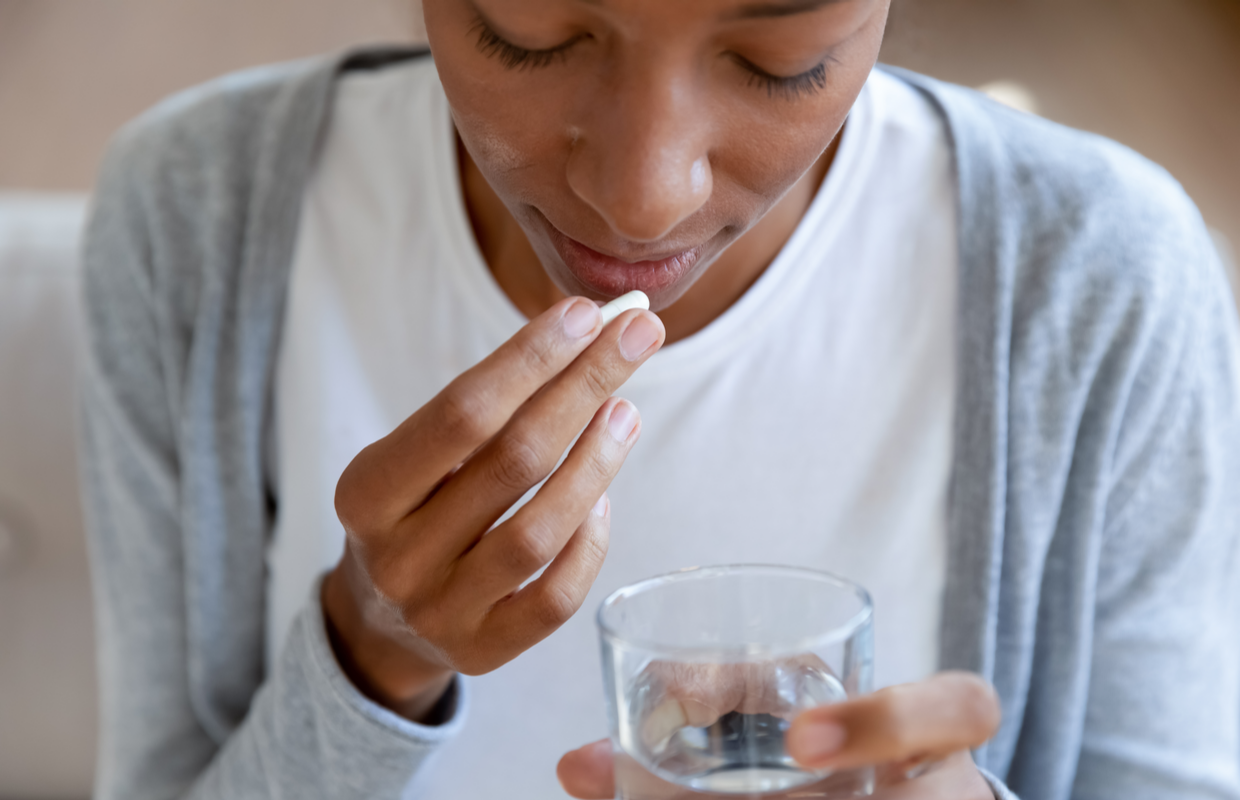
The current antihistamine shortage is being caused by the low availability of an ingredient called chlorphenamine maleate.
What sufferers can do amidst the antihistamine shortage?
‘Struggling to get hold of your normal hay fever treatment is understandably a worry for anyone battling symptoms at this time of year. However, it can create an opportunity to speak with your pharmacist about other alternatives that might be better suited to your symptoms,’ explains Dr. Edel.
‘New research by the makers of Fusion Allergy Nasal Spray reveals that 85% of hay fever sufferers rely on antihistamines to manage their symptoms. However, demand for natural products is on the rise, with two in three stating that being natural, drug-free and preservative-free is important to them.’
What lifestyle changes can I make to reduce my hay fever symptoms naturally?
Wondering how to stop hay fever symptoms without antihistamines? Dr. Edel Duffy shares her top tips for managing hay fever symptoms…
Avoid bringing in pollen from outside
- Leaving the clothes that you’ve worn during the day outside of the bedroom is a good way to help minimise the amount of pollen you bring in to your room before bed.
- Washing or even simply wetting your hair before bed will help to stop pollen and other allergens rubbing off on to your pillow. Pollen can even attach itself to your eyelashes. Try bathing your eyes before bed to reduce the chances of any flare ups during the night.
Planning ahead
- Heading outside is great for our mental wellbeing, so don’t let hay fever get in the way of you enjoying some time outdoors. It’s worth checking daily pollen counts so you’re prepared. Try planning your day so that you spend time outdoors in the afternoon or early evening when pollen counts are usually at their lowest.
- Taking hay fever products out with you can help to manage symptoms whilst you’re out and about can give you added peace of mind.
Keeping your home a pollen-free zone
- Avoid bringing pollen into your house by taking your shoes off at the door.
- If you have a cat or dog, limit the amount of pollen they bring into the house by combing their fur before they come in. Or better still, get someone else to do it for you if you can!
How to stop hay fever: best products for hay fever relief
Learn how to stop hay fever symptoms in their tracks with our pick of the best products…
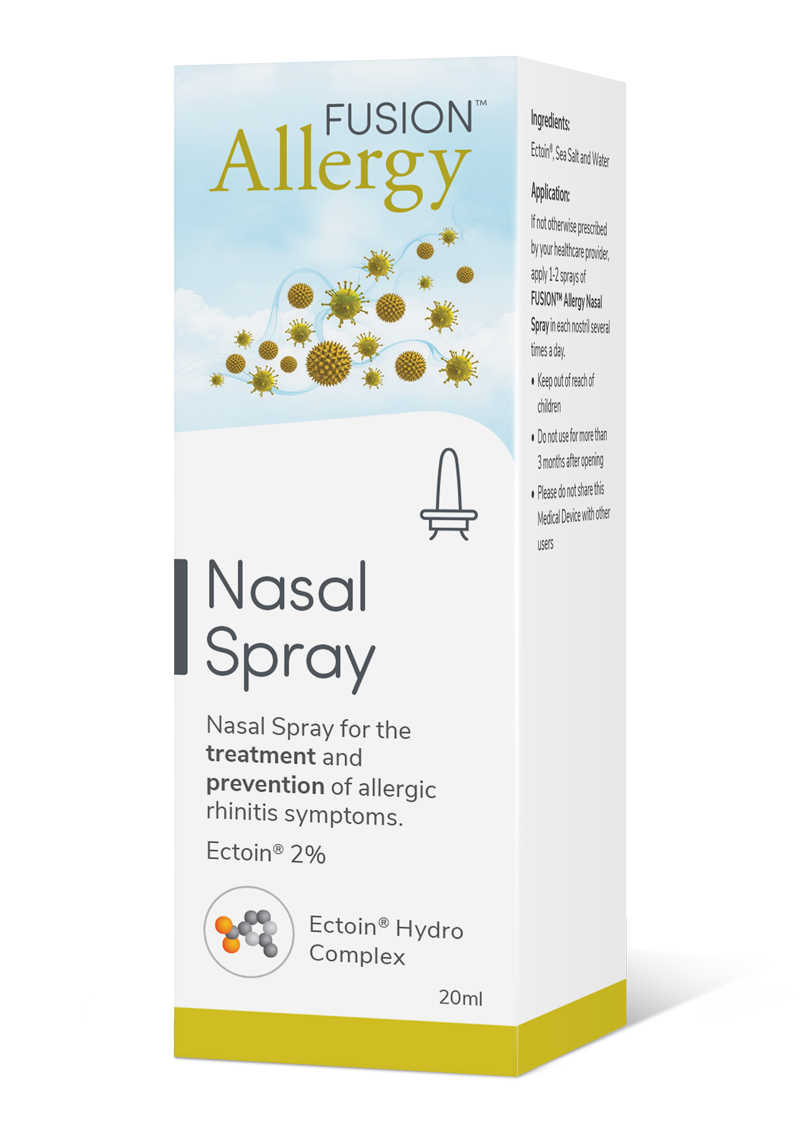
FUSIONTM Allergy Nasal Spray (£9.99)
FUSIONTM Allergy Nasal Spray is a natural and preservative-free hay fever product that provides immediate symptom relief thanks to the anti-inflammatory and anti-allergic ingredient, Ectoin®, which naturally forms a moisturising protective “shield” for the eyes, nose, mouth and throat, blocking out pollen and other allergens such as dust or animal hair.

HayMax Allergen Barrier Balms (£6.99)
HayMax allergen barrier balms are great for relieving symptoms, and there’s even a version that’s safe for children. The balms provide a protective barrier for your nostrils, making it harder for pollen to get in and start irritating. Plus a study from Allergy UK found that 80% of users noticed a real difference in symptoms.
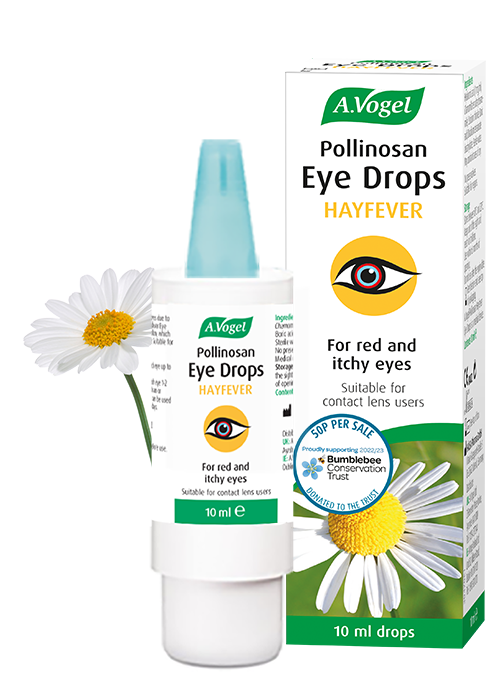
Avogel Pollinosan Hayfever Eye Drops (£12.99)
Avogel Pollinosan Hayfever Eye Drops contain hyaluronic acid (from vegetable source) and can be used for quick relief of red and itchy eyes due to hay fever. Unlike many eye drops, they are also suitable for contact lens wearers.

Beconase Hayfever Relief Nasal Spray (£13.56 for 3 bottles/300 sprays)
Beconase Hayfever Relief Nasal Spray is an easy-to-use daily spray that helps hay fever and rhinisis through its anti-inflammatory ingredients.

